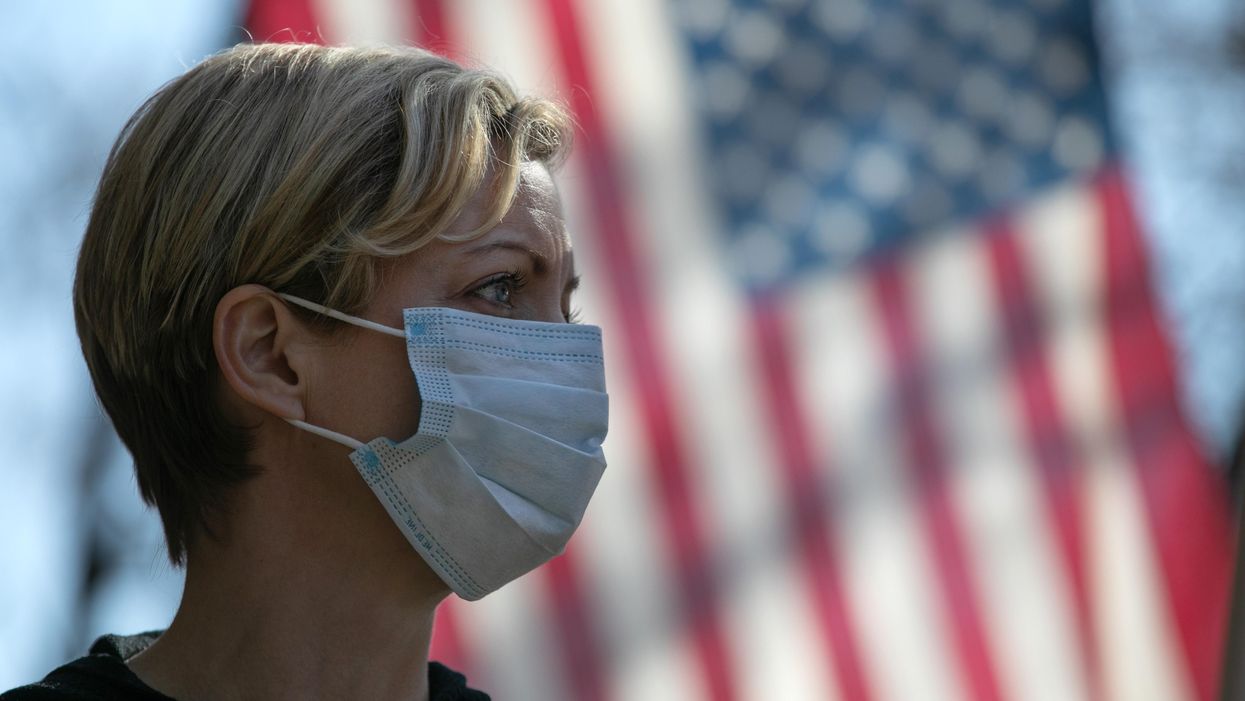
Photo by John Moore/Getty Images

Researchers at the Yale School of Public Health claim that unvaccinated people could expect to be infected with the coronavirus every 16 months.
The study was published in The Lancet Microbe on Oct. 1.
A Wednesday report from The Hill states that researchers analyzed data on natural immunity to draw their conclusions, and noted that findings indicated that natural immunity is "somewhat short."
Hayley Hassler, a co-author on the study, told Yale Daily News that the study's goal was to shed more light on reinfections.
The Yale Daily News reported that the study's researchers utilized a statistical model in order to "assess the durability of natural immunity against COVID-19."
Yale News reported that the team analyzed "known reinfection and immunological data" from close viral relatives of SARS-CoV-2 — such as viruses that cause the common cold and more — in order to make their determinations.
"Leveraging evolutionary principles, his team was able to model the risk of COVID-19 reinfection over time," the report added. "Reinfections can, and have, happened even shortly after recovery, the researchers said. And they will become increasingly common as immunity wanes and new SARS-CoV-2 variants arise."
Researchers determined that reinfection is likely — and could occur regularly — among unvaccinated individuals.
"The overall goal of the study was to provide an answer to a question that at this point in the pandemic would be impossible to answer empirically, which is how long after you've been infected by SARS-CoV-2 can you expect to possess immunity against the virus before you become vulnerable to reinfection?" Hassler asked, adding that the risk of reinfection is about 5% at three months following the initial infection. After 17 months, the number increases to 50%.
"Our results are based on average times of waning immunity across multiple infected individuals," she added. "Any one of those individuals may experience longer or shorter durations of immunity depending on immune status, cross-immunity, age, and multiple other factors."
Alex Dornburg, who also co-authored the study, added, "We tend to think about immunity as being immune or not immune. Our study cautions that we instead should be more focused on the risk of reinfection through time. As new variants arise, previous immune responses become less effective at combating the virus. Those who were naturally infected early in the pandemic are increasingly likely to become reinfected in the near future."
Study lead author Jeffrey Townsend, professor of biostatistics at Yale School of Public Health, told Yale News earlier in October that "[r]einfection can reasonably happen in three months or less."
"Therefore, those who have been naturally infected should get vaccinated," he added. "Previous infection alone can offer very little long-term protection against subsequent infections."